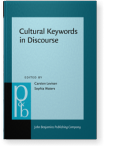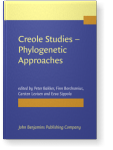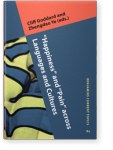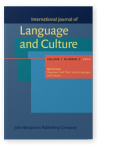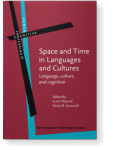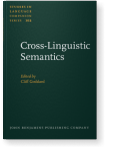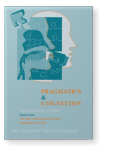Carol Priestley
List of John Benjamins publications for which Carol Priestley plays a role.
2017 Chapter 4. Social keywords in postcolonial Melanesian discourse: Kastom ‘traditional culture’ and tumbuna ‘ancestors’ Cultural Keywords in Discourse, Levisen, Carsten and Sophia Waters (eds.), pp. 83–106 | Chapter
In postcolonial Melanesia, cultural discourses are increasingly organised around creole words, i.e. keywords of Bislama (Vanuatu) and Tok Pisin (Papua New Guinea). These words constitute (or represent) important emerging ethnolinguistic worldviews, which are partly borne out of the colonial era,… read more
2017 Chapter 15. The semantics of Englishes and Creoles: Pacific and Australian perspectives Creole Studies – Phylogenetic Approaches, Bakker, Peter, Finn Borchsenius, Carsten Levisen and Eeva M. Sippola (eds.), pp. 345–368 | Chapter
This chapter provides a lexical-semantic comparison of a selection of Englishes and English-related creoles in the Australia-Pacific area. Faced with the conundrum in sociolinguistic classificatory practice and its contested categories: “language”, “creole”, “dialect”, “variety”, and… read more
2016 The semantics and morphosyntax of tare “hurt/pain” in Koromu (PNG): Verbal and nominal constructions “Happiness” and “Pain” across Languages and Cultures, Goddard, Cliff and Zhengdao Ye (eds.), pp. 123–141 | Article
This chapter examines the words and constructions that Koromu speakers (PNG) use to talk about tare ‘hurt/pain’ and other painful sensations. It also reflects on links to cultural and environmental influences in daily life and key life events, environmental knowledge and traditional health care.… read more
2014 The semantics and morphosyntax of tare “hurt/pain” in Koromu (PNG): Verbal and nominal constructions "Happiness" and "Pain" across Languages and Cultures, Goddard, Cliff and Zhengdao Ye (eds.), pp. 253–271 | Article
This paper examines the words and constructions that Koromu speakers (PNG) use to talk about tare ‘hurt/pain’ and other painful sensations. It also reflects on links to cultural and environmental influences in daily life and key life events, environmental knowledge and traditional health care.… read more
2012 7. Koromu temporal expressions: Semantic and cultural perspectives Space and Time in Languages and Cultures: Language, culture, and cognition, Filipović, Luna and Katarzyna M. Jaszczolt (eds.), pp. 143–165 | Article
This chapter examines different types of time expressed in Koromu (Kesawai), a Papuan language, to show the interaction of time expressions with cultural and environmental contexts and to investigate semantic description. Meanings are explicated in a metalanguage based on semantic primitives (cf.… read more
2008 11. The semantics of "inalienable possession" in Koromu (PNG) Cross-Linguistic Semantics, Goddard, Cliff (ed.), pp. 277–299 | Article
2002 Insides and emotion in Koromu The Body in Description of Emotion: Cross-linguistic studies, Enfield, N.J. and Anna Wierzbicka (eds.), pp. 243–270 | Article
This paper describes several emotion expressions in Koromu, a language of Papua New Guinea. As in other languages, emotions can be expressed by reference to body events and processes. Bodily images are used for common and pertinent emotion expressions in Koromu and the alternative grammatical… read more
